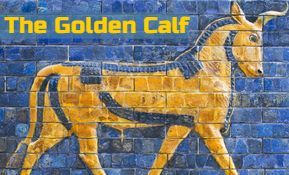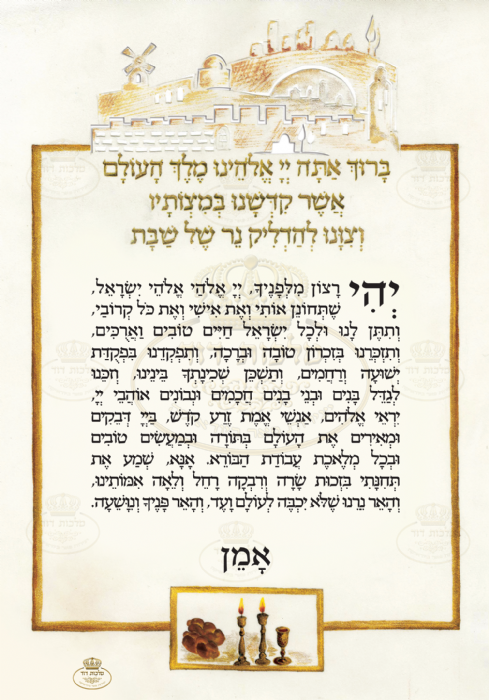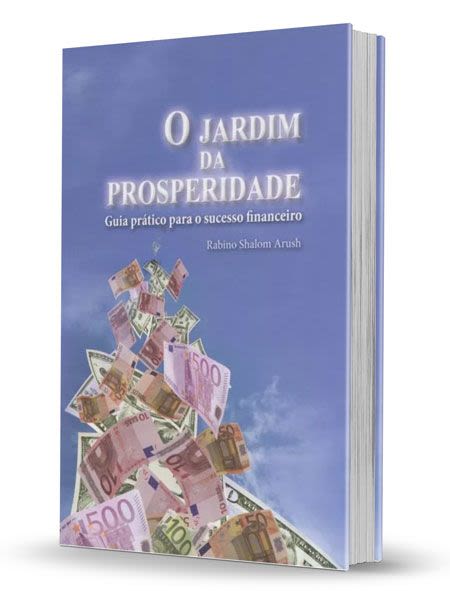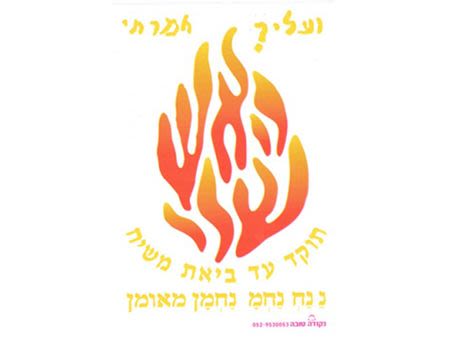
Toldot: Be the Master of Your Character
Esav, however, was a man of the field, a survivor. He certainly knew how to handle himself in the wilderness. Can we believe...

Rome versus. Jerusalem
Years ago, when I studied at the University of California, the administration took great pride in the fact that one of their professors was a member of the Club of Rome – a prestigious, global think tank, made up of a few hundred of the most influential and highly respected intellectuals in the world.
If you ask a travel agent for a ticket to the ‘eternal city,’ will your destination be Rome or Jerusalem? Most probably Rome. Scholars tend to agree that today’s Western civilization is based on Roman culture.
When I first came to Israel twenty six years ago, I was introduced to a different view of civilization – the Torah worldview, represented by Jerusalem. Winston Churchill had this to say about Jerusalem: "No two cities have counted more with mankind than Athens and Jerusalem. Their messages in religion, philosophy, and art have been the main guiding lights of modern faith and culture." Athens formed the philosophical and cultural backbone of Rome, while Jerusalem is the heart of Judaism!
According to Jewish tradition, the descendants of Esav (Esau) founded the Roman nation, while the Jews are descended from Yaakov (Jacob). If we examine the contrast between Esav and Yaakov, we can understand the fundamental differences between Western civilization and Torah ideology.
Let’s analyze the beginnings of these twins, which will shed light on our understanding of their opposing worldviews.
Working on Yourself?
When Rivka (Rebecca) was pregnant, the Torah states that “the children struggled within her." Rashi explains that the word "vayitratzatzu," "struggled," has the same root as "running," "rutza." Whenever Rivka passed the Torah academies of Shem and Ever, Yaakov would struggle to come out – he ran to learn Torah. When Rivka passed a temple of idolatry, Esav would struggle to come out – he ran to serve idols.
Since Rivka was worried by this strange phenomenon, "She went to inquire of God" (Bereishit 25:22). The Sages explain that Rivka visited the Yeshiva of Shem and Ever, where she was told that she was expecting twins, and that the older would become subordinate to the younger.
Esav emerged first, hairy and with a ruddy complexion. The name Esav means "fully-made," as he was born completely formed.
His brother, however, was holding tightly onto Esav's heel and was called Yaakov, which means "he shall heel."
When a name is mentioned in the Torah, it identifies that person's essence. Therefore, from the name itself we can understand the difference between Esav and Yaakov, and hence Western civilization versus Torah society in general.
Esav viewed himself as ‘fully-made.’ In other words, he has no need for improvement. “Accept me the way I am. If I happen to have a wild temper, then you’re going to have to learn to deal with it. Don't expect me to change!”
This attitude is reflected in a society where it's acceptable to see a psychiatrist for relief from uncomfortable emotions, while neglecting to change negative behavior.
Yaakov's name, on the other hand, is derived from the word "ekev," since, at birth, Yaakov was reaching for the Esav's heel. Yaakov was always striving, reaching, and seeking to grow. He led a life based on the principle of self-improvement, ‘working on yourself,’ which is the foundation of mussar and chassidut.
The Hypocrite and the Tam
Yaakov was tam, "wholesome," not inclined to mislead others. He learned diligently in Yeshiva. Esav, on the other hand, was a hunter. He stealthily stalked his prey, and then pounced on it.
"Yitzchak (Isaac) loved Esav as he hunted for his food, while Rivka (Rebecca) loved Yaakov" (Bereishit 25:28). Yitzchak appreciated Esav's potential. He was a doer, a man who left his home to accomplish things. He not only hunted for his food, he also "hunted" Yitzchak through fooling him about his true essence. Esav would ask seemingly pious questions such as, "How does one tithe salt?" (which does not require tithing) and other "religious" questions to appear righteous.
The rabbi's compared Esav to a pig. Of all the non-kosher animals, the pig is the only one with cloven hoofs (a kosher sign) that does not chew its cud (rendering it non-kosher, because to be kosher an animal has to have both signs, like a cow, which has cloven hoofs and chews its cud). The Sages point out that the pig slouches on the ground with all its hoofs sticking out from under its impure belly, as if to say: “look at me, I’m kosher!”
Yaakov chose the path of integrity and simplicity. The Torah states:
"Yaakov was an 'Ish tam' (straight person) who sat in tents (of study)" (Breishit 25:27)
What do we learn from the fact that Jacob was an "Ish tam"?
Rashi defines the word "tam" as a person who is not skilled in deceiving others. As is his heart, so are his words. Yaakov was not called a "tam," but an "Ish Tam." That is, he was a master over the trait of being a "tam." He was totally honest, a man of great integrity. If necessary, he could use cunning strategy.
Rabbi Yaacov Yitzchak Ish Horowitz Halevi, the Chozeh of Lublin, teaches that a person needs to be the master over his character traits so that he can use them properly. As the Sages say, "Whoever is compassionate when he should be cruel will eventually be cruel when he should be compassionate." If a person fails to apply so-called negative traits in their proper times, he will end up applying them when it is wrong to do so.
Superficiality vs. Depth
"Yaakov was cooking a lentil soup" (Bereishit 25:29). The Sages say that Yaakov prepared these lentils as the mourner's meal for his father, who had just returned from Avraham's funeral. Lentils are round, representing the cycle of life from birth to death. (The custom today is to serve eggs, which are also rounded.)
Esav came home, exhausted from hunting. "Pour into me, now, some of that very red stuff for I am exhausted," exclaimed Esav. “He was therefore called Edom (which means red)” (Bereishit 25: 30).
According to the Seforno, onlookers gave Esav this name in a derogatory manner, as if to say, “You are so divorced from normal human values, so consumed with your hunting and plunder, that you look at food and refer to it only by its color – ‘pour the red stuff down my throat!’ A person like you should be red, like the stew you wish to swallow!” This incident reveals the superficiality of Esav’s worldview.
In today’s civilization, we must contend with the most superficial of all medias – television. All normal human values are sublimated to the most financially rewarding of all considerations: eye candy.
But what about Yaakov? "Yaakov was an 'Ish tam' (straight person) who sat in tents (of study)" (Bereishit 25:27). Why does the Torah use the verb ‘who sat’ in the tents of study when it describes Yaakov instead of saying ‘he learned?’ The answer is because yeshiva, sitting, implies that one delves into the depth of life and really thinks about the meaning and purpose of existence. It’s no accident that the institutions of higher leaning of Torah are called Yeshivot!
Materialism vs. Spirituality
When Esav roughly ordered, "Pour the red stuff down my throat," Yaakov responded, "Sell me your right to the first-born in exchange." Our grandfather Avraham died today while you were out hunting and you didn't even attend the funeral.
Esav said, "Look, I am going to die, so of what use to me is a birthright?" Yaakov bought the birthright from Esau for a bowl of lentil soup.
This sounds cruel. The poor man is about to die; why not give the bowl of soup? Talk about taking advantage, and I thought you were the ish Tam?!
Esav, however, was a man of the field, a survivor. He certainly knew how to handle himself in the wilderness. Can we believe he was starving? Furthermore, where was Yaakov? He was preparing the mourner’s meal to serve his father, Yitzchak. Esav, his twin, was just outside his own home. Couldn’t he walk over to his mother’s tent and ‘raid the fridge?’
After he finished eating, Esav got up and left. He didn't argue. He never claimed, "You took advantage of my hunger! I changed my mind!" He didn't say, "Goodbye and good luck!" Esav spurned the birthright. He sold it for a mere bowl of soup.
What did Esav mean when he said, "Look, I am going to die?” He was telling Yaakov, “Don’t burden me with the birthright, with a sense of spiritual responsibility. All I want is to eat, drink and be merry, for tomorrow I die.”
This is the materialistic worldview. As an eminent professor of Biology once wrote, “Look, face it, we’re lumps of flesh and when our time is up we’ll rot in the grave.” Esav did not want the birthright, because he assumed that life finished with death.
Yaakov, however, wanted the birthright. We, the descendents of Avraham, Yitzchak and Yaakov are interested in the role of spiritual responsibility for the betterment of mankind. We want to be the leaders who will guide the world to its perfection, a light unto the nations.









